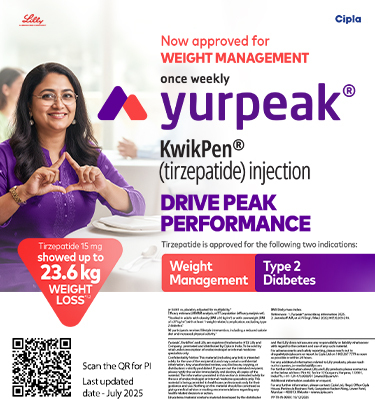
 Dr. Sanjay Kalra
Dr. Sanjay Kalra
Diabetes and Coronavirus (COVID-19)
Dr Sanjay Kalra
President of the Endocrine Society of India
We are all in the midst of a COVID-19 pandemic. Diabetes has been found to be apoor prognostic factor for COVID-19 infected people, but the reality is much deeper, diabetes has a multifaceted and bidirectional link with COVID-19.
Uncontrolled diabetes is a condition of impaired immunity. In an individual with poorly controlled diabetes, immunity may be impaired increasing susceptibility towards COVID-19 infections and worse outcomes if the person gets infected. Hence, diabetes can be considered a prognostic factor in COVID-19 infections.
Unfortunately, diabetes is considered as a tool for triage in many health systems in the world. It is important to counsel everybody involved that diabetes is a heterogeneous condition. Not everyone with diabetes will have poor outcomes. Certain factors are at play here including;
- Duration of diabetes
- Degree of hyperglycemia
- Presence or absence of other chronic complications and acute comorbidities
So, diabetes per se should not be viewed as a tool for triage. In fact it should be considered as a tool for improvement and achieving optimal targets. In this case, the target is recovery from COVID-19 infections.
How to manage diabetes
Achieve and maintain euglycemia through lifestyle and appropriate drugs
Not every dysglycemia is diabetes, many people have stress hyperglycemia which needs to be identified and treated.
Glucovigilance: Health care professionals shouldbe very vigilant regarding the screening, diagnosis, management, and monitoring of dysglycemia
Don’t ignore other endocrine glands involved in critical conditions; adrenal insufficiency and thyroid syndrome
Adrenal insufficiency is quite common in ICU settings, presents as ‘Koala Bear syndrome,’ and health care personnel should work in teams including endocrinologists to identify and treat these endocrinal insufficiencies.
Health care team’s message to patients
Those who are not infected and those in confinement/lockdown
- Take care of yourselves
- Stock the necessary drugs and ancillarysupplies
- Find and follow healthy nutrition choices and physical activity regimens (which can be done inside home)
- Don’t go out
- Remain stress free, because stress will increase glucose levels
- Patients who are asymptomatic, infected with COVID-19
- Take very good care of yourself
- Follow optimal healthy lifestyle
- Do not go overboard with lifestyle change; if you have never exercised in the past, this is not a good time to start intensive exercise; or if you have never followed dietary restrictions, this is not a good time to go for carbohydrate restrictions
- Optimize your glucose control. If you are well controlled on a particular oral antidiabetic drug, continue the same. If your glucose control is poor, and you need intensification it is better to shift to insulin
- Ensure that you are able to monitor glucose levels. Ensure that you know correct insulin injection technique and disposal techniques while using insulin. All the injectable are of biohazardous quality and should be disposed of very carefully
Symptomatic COVID-19 patients
You need to be hospitalized
You may need help from other health care personnel who might be an internist, intensivist or an infectious disease expert.
Follow their advice, manage optimal glucose levels. If glucose levels are very good, continue the same regimen. If glucose not controlled, an intensive insulin regimen may be needed.

Dr. Sanjay Kalra
Dr. Sanjay Kalra is a globally recognized endocrinologist with extensive contributions to clinical care, research, and medical education. He currently serves as the Treasurer of the International Society of Endocrinology (ISE) and President of the Association of Longevity and Anti-ageing Medicine. He has previously held leadership positions as President of the Endocrine Society of India (ESI), South Asian Federation of Endocrine Societies (SAFES), and the Indian Professional Association for Transgender Health (IPATH). With a strong academic and research background, Dr. Kalra has served as Principal Investigator in over 50 international Phase 1–4 clinical trials. He is also the Principal Investigator for Haryana in the Indian Council of Medical Research’s INDIAB study. A prolific speaker, Dr. Kalra has delivered more than 1000 lectures on diverse endocrinology topics across five continents, including Europe, North America, Africa, Asia, and Australia.


















Please login to comment on this article